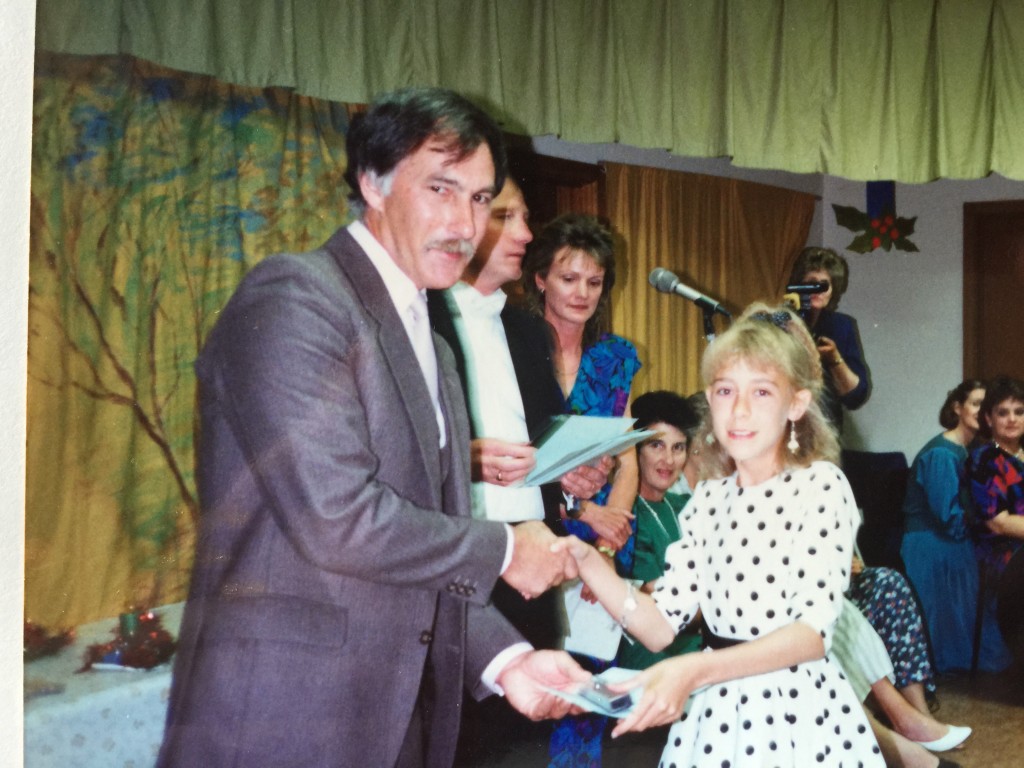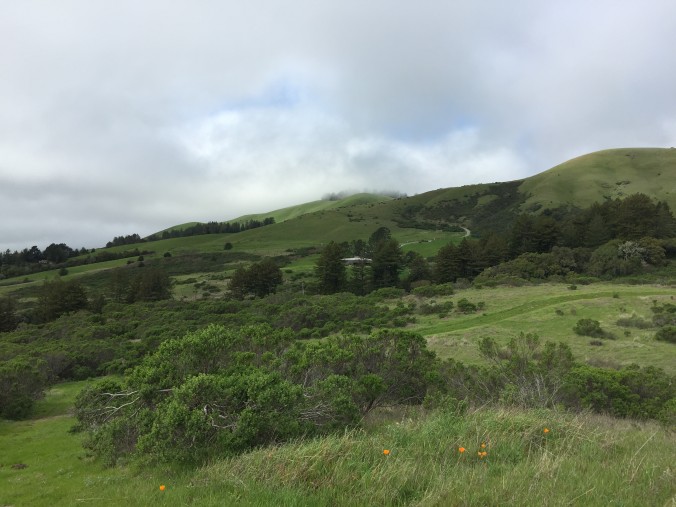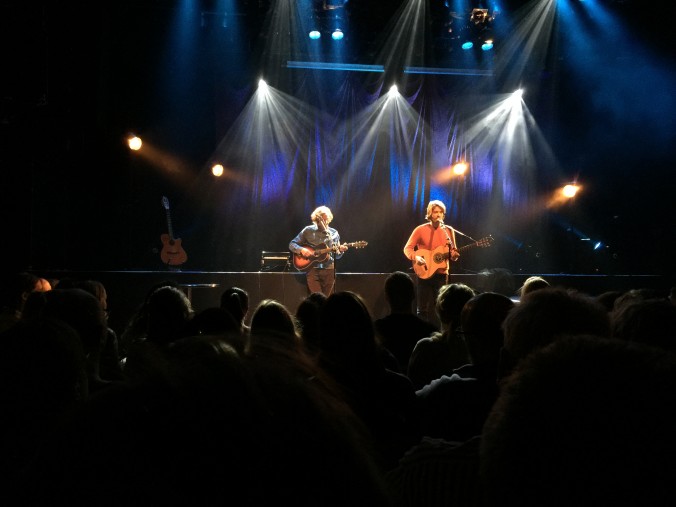One year ago today, my life exploded. On that day, I didn’t know what to do, where to go, or what would happen next. Friends urged me to look forward without worrying about how I’d get there—to look to the light at the end of the tunnel, not at the road beneath my feet. But I like details. They make me feel safe and in control. So, I concentrated on the details, and bit by bit, I built a new life.
Page 2 of 8
A few weeks ago, my ex told me he wanted to take our daughter to Turkey for the summer holidays. This would require my written permission, as I had needed his to take her to Australia last November. With all the unrest at the Syrian border, I was reluctant, but I agreed. I told myself the resort town of Side in Antalya was a long way from the areas that were subject to travel warnings, and tried to ignore the reports that said militant groups may target tourist areas.
Two years ago I cracked the sads when I had to leave Djerassi. On my return home, I was bereft. Looking back, I think a lot of it had to do with the state my life was in at the time, but it was also due to the fact that it was the first time since I’d started seriously writing that I let myself be only a writer, one hundred per cent, if only for a week.
I started my first novel before I got pregnant, but at the time I was working full time as an IT project manager; writing was just something fun to do when I was stuck on an aeroplane or in a hotel room and didn’t feel like preparing for my next meeting. Then, I pretty much stopped writing for a year and a half after I found out I was pregnant, and when I picked it up again it was only for one day a week. The first time I went to Djerassi, I didn’t know anyone and spent most of my non-workshop time alone in my studio, revelling in artistic freedom and inspiration. Leaving was hard.
*Content warning: This post discusses depression, PND, and suicide.
It’s International Women’s Day, and this morning my Facebook memories were filled with wonderful, empowering posts from March 8s past, but when I got to March 8, 2013, I found some posts I had forgotten belonged to this day, and the tears began to well. On this day in 2013, I said goodbye to a friend I met (oddly coincidentally) on Women’s Day in 2009 at a company breakfast. I had only been working there a few months, and was in the engineering department where there weren’t many women. I was seated between two women I didn’t know and, as I tend to do in these situations, I kept to myself and hoped someone else would break the ice.
. . . will you not stay with me for one night and be my messenger?
The Happy Prince by Oscar Wilde is one of my great pleasures. I love it the way you love anything that set you on your path.
As a child, I had a reading of it on cassette that I listened to every night to fall asleep. I loved (and still love) the other stories—The Selfish Giant, The Devoted Friend and The Birthday of the Infanta among others—but nothing quite touched my heart like the plight of the Happy Prince and his little swallow. It is a love story in its purest form. The prince’s love for his people, and the swallow’s love for the prince, are selfless, and tragic, and painfully beautiful. I don’t remember now who the voice on the cassette belonged to, but it was a lovely reading, slow and musical—the way I always hear the story in my head when I read it.
I’m sure there are millions of writers the world over who have been inspired to pick up a pen by Oscar Wilde for more than a century. He was, and remains, incomparable. I am no different to those millions, I suppose, but it was specifically the story of the prince and the swallow that made me want to write. The way the words flowed like water, the way each character, no matter how insignificant—and Wilde is a master of tiny yet complex cameos—pulled at my heart. Even as an eight year old child, I knew I wanted to create beauty like this through words of my own. I wanted to write.
Alone is getting home at 1 in the morning and not having to worry about waking anyone up. In fact, you can make a cup of tea, turn all the lights on, and play some music. Continue reading
A couple of months ago my relationship of almost fifteen years ended very suddenly, leaving me reeling. Aside from the actual break, one of the hardest parts of accepting what happened was knowing I was going to have to stay in Norway, even though my every instinct screamed to run home into the open arms of concerned friends and family. But to do that, I would need permission from my daughter’s father to take her out of the country, and though I knew he’d give it for a short period, moving back to Australia was always out of the question.
Luckily (or not perhaps not luck—maybe my subconscious was hard at work preparing me all those months ago), I had already booked a trip back for my daughter and me before everything fell apart. Through November and December, we spent five weeks surrounded by the Australians who love us, not one of whom didn’t want us to stay forever, yet not one of whom said or did anything to make it harder to do what I had to do: return to Norway.
Last night I went to a concert I had been waiting to see for six years—the last time I saw Kings of Convenience I was six months pregnant, and it was, without a doubt, the best concert I’ve ever attended. Eirik and Erlend are a Norwegian duo I have been following since their first album came out in Australia in 2001; not by coincidence, I discovered them because I had just begun dating a Norwegian boy. The concert began with an interview by journalist and author Ørjan Nilsson, who released a book about the band last year, followed by a performance of the entire debut album that shared its name with the book, Quiet is the New Loud, and which contained the essence of their appeal: unassuming, profound songs that are at once relaxing and deeply passionate.
“You don the disguise long enough, and you can’t even recognize that you are acting. That you are behaving inauthentically, from a place of fear and insecurity. That you can’t figure out how to reconcile the real you with the pretend you.”
So writes Facebook’s Product Design Director, Julie Zhuo, in her article The Imposter Syndrome. She talks about the insecurity and fear she used to feel while she studying and working in software development. It spoke to me because not only have I felt that way working in software development myself, but because even after a change of career paths, I still worry that I don’t belong, despite feeling all the while like this is what I was born to do. And I’m not the only one; so many of the writers I’ve come to know have these thoughts all the time.
What is it about being in your thirties that makes you particularly nostalgic? It can’t just be that it’s the most likely time to be raising children and therefore thinking about your own childhood; previous generations were equally susceptible, and most of them were well into parenthood by the time they were in their thirties.
I can remember growing up in the ’80s amid a wave of ’50s nostalgia, echoed in movies like Back to the Future, The Karate Kid II, and Grease. I remember a car commercial [see the whole scary thing here] featuring a woman in ’50s style polka-dot dress over layers of tulle singing “Gotta Get a Holden Nova” to the tune of Blame it on the Bossa Nova on which I based my primary school graduation dress—with the inevitable addition of 80s iron-crimped hairdo. Poodle skirt + poodle hair = cringe-factor one million. But I was twelve, so I’ll give myself a pass. The ’50s were everywhere in the ’80s.

Year Seven graduation










